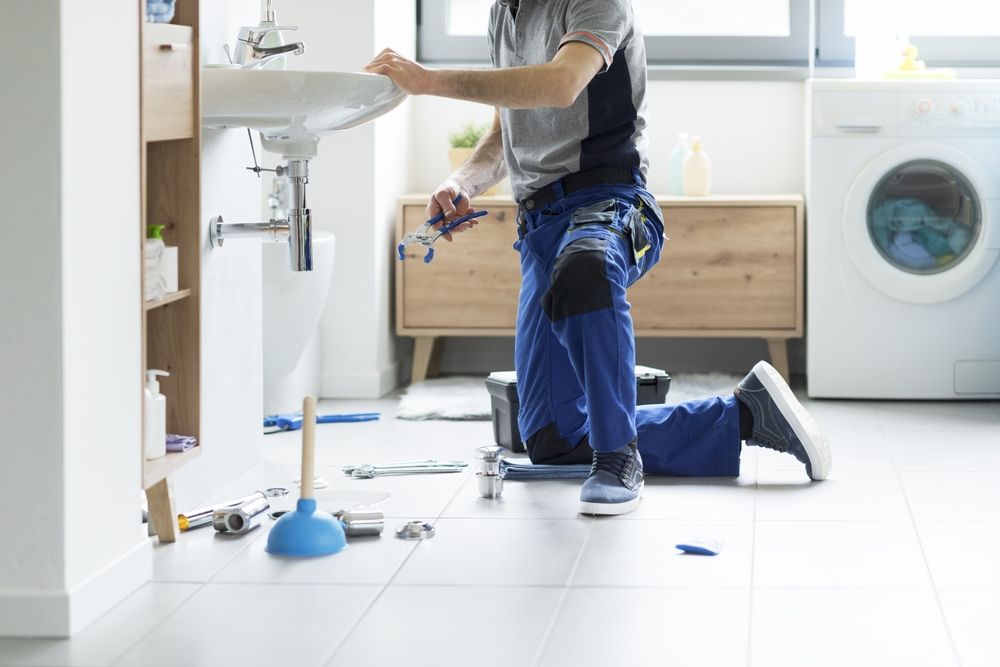Nothing throws a wrench in your budget quite like an unexpected home repair. Whether it’s a leaking roof, a burst pipe, or a failing furnace in the middle of winter, these surprises can be stressful and costly. While you can’t always predict when something will break, you can take smart steps to reduce the financial impact.
Here’s how to save money on emergency home repairs—so when the inevitable happens, you’re prepared and your wallet takes less of a hit.
Build an Emergency Fund for Repairs
The best defense against unexpected repair costs is having cash set aside.
-
Aim to keep at least a small emergency fund dedicated to home repairs.
-
Even starting with a few hundred dollars gives you a cushion for minor issues, helping you avoid putting repairs on high-interest credit cards.
-
Ideally, homeowners try to save 1–3% of their home’s value each year to handle maintenance and repairs.
Having money ready means you can pay upfront, often securing better pricing and avoiding financing fees.
Handle Small Fixes Yourself
Not every repair requires a pro. For minor issues—like replacing a faucet washer, fixing a running toilet, or patching a small drywall hole—a quick online tutorial can save you the cost of hiring someone.
-
YouTube and DIY blogs are packed with step-by-step guides.
-
Invest in a basic toolkit so you’re ready for simple jobs.
-
Just know your limits. For anything involving major electrical, gas lines, or structural work, call a licensed professional.
Even handling small fixes yourself can save hundreds over time.
Keep Up With Regular Maintenance
Many major, expensive repairs start as small problems that could have been caught early.
-
Clean gutters twice a year to prevent water damage.
-
Inspect your roof annually for missing shingles or flashing issues.
-
Service your HVAC systems to catch issues before they escalate.
-
Drain your water heater to reduce sediment build-up that shortens its lifespan.
Spending a little on preventive maintenance often prevents far larger emergency bills later.
Shop Around for Contractors—Even in a Rush
When emergencies strike, it’s tempting to hire the first company that can come out. But rushing can be costly.
-
Try to get at least two or three estimates, even if it means an extra day.
-
Check online reviews and ask neighbors for referrals to avoid paying for shoddy work that needs to be redone.
-
Confirm that contractors are licensed and insured—fixing a mistake by an unqualified handyman could cost even more.
Some companies charge hefty emergency rates. If possible, weigh whether waiting a day or two could save you significantly.
Know What Insurance Covers (and Doesn’t)
Homeowners insurance might help with sudden issues like storm damage or certain plumbing failures, but it usually won’t pay for problems caused by neglect or normal wear and tear.
-
Review your policy so you understand your deductible and what’s covered.
-
For example, a burst pipe might be covered, but an old roof leaking from age likely won’t be.
If you’re not sure, call your insurance agent before paying out of pocket—you might save thousands on covered repairs.
Avoid Unnecessary Service Calls
Before calling a pro, do a quick basic check.
-
Reset circuit breakers if you lose power to part of the house.
-
Check the thermostat and furnace filter before calling an HVAC tech.
-
Ensure the water shut-off valve isn’t accidentally closed if you lose water.
Simple checks could solve the problem without paying for a visit.
Consider a Home Warranty—But Read Carefully
Home warranties can help offset the cost of sudden breakdowns for systems like plumbing or HVAC.
-
They often cover things regular homeowners insurance does not.
-
However, policies vary widely in what they actually pay for and many have strict conditions or caps on payouts.
Read the fine print closely and calculate if premiums + service fees still save you money compared to paying out of pocket.
Keep a List of Trusted Professionals
When a pipe bursts or the furnace fails on a freezing night, you don’t have time to start researching.
-
Build a list of vetted plumbers, electricians, and handymen ahead of time.
-
Ask friends or neighbors who they recommend.
-
Having this ready helps you avoid panic hires that overcharge or underdeliver.
Good relationships with local pros can even mean faster service and fairer rates when emergencies happen.
Use Financing Wisely—Or Avoid It When You Can
Sometimes major repairs simply have to happen now—like a failed water heater or a dangerous electrical issue.
-
Before putting costs on a high-interest credit card, see if the contractor offers zero-interest short-term financing or if you can negotiate a payment plan.
-
Alternatively, a personal line of credit from your bank often comes with lower rates.
If you have your emergency fund in place, paying cash and avoiding debt altogether saves the most over time.
Don’t Overlook Warranty or Recall Coverage
Before paying out of pocket to replace an appliance or system, check for active manufacturer warranties or recalls.
-
Sometimes even older units are still covered by extended parts warranties.
-
If a product has been recalled, you may be entitled to a free repair or replacement.
A quick call to the manufacturer could save you the full cost of fixing or replacing equipment.
Emergency home repairs are never fun—but they don’t have to be financial disasters. By planning ahead with savings, handling small tasks yourself, keeping up with maintenance, and being smart about who you hire, you’ll protect your wallet and your home.
Remember, your house is one of your biggest investments. A little preparation goes a long way in turning big emergencies into manageable bumps—so you can focus on enjoying your home instead of constantly worrying about costly surprises.





